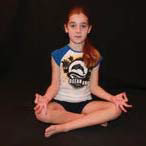The long-awaited decision in the Encinitas public-school yoga trial is finally in -- and the yoga program can continue.
I took more than usual interest in this case. Given my scholarly research on yoga, I was asked (by the plaintiffs) to testify as an expert witness in the trial. I accepted the request because part of my job as a professor of religious studies is to educate the public about "religion." To this end, I often give media interviews and speak to community groups. Here was an opportunity to educate the courts. I reviewed all trial materials submitted to the judge, testified for a full court day, and observed or read reports from all remaining court proceedings.
Yesterday morning, California Superior Court Judge John Meyer spent nearly two hours reading his decision. The ruling was frankly confusing. The astounding thing is that the judge actually found that yoga, and especially Ashtanga yoga, is based -- from the beginning until the present day -- in Hinduism and IS religious! He also found it "troublesome" that the Encinitas Union School District (EUSD) program was funded by the overtly Hindu Jois Foundation, the founder of which believes that just doing yoga postures will lead practitioners to Samadhi, or union with God. The judge even observed that the pose sequences taught by EUSD resemble the religiously-motivated Ashtanga series taught by Jois.
Defense witnesses convinced the judge that they removed religion by renaming poses, for instance, calling the religiously-laden "lotus" pose "criss-cross applesauce." This claim is, however, directly contradicted by facts in evidence. The "new" EUSD curriculum still uses the term "lotus" -- as does the promotional video submitted by the district to show that religion has been stripped.

In the end, the judge concluded that EUSD watered down its yoga program sufficiently that a "reasonable" student would not learn enough from the classes to associate yoga with religion. The problem here is that the judicial standard established by previous courts is that of an "informed as well as reasonable" observer who is "familiar with the history" of the practice at issue -- not an ignorant observer.
The implications of accepting an ignorant observer standard are really quite frightening, especially as it concerns children. This would leave young and impressionable public school children with no protection from religious indoctrination by new or unknown religions that children have neither age nor experience to recognize as "religious."
Elementary school students are not tabula rasa. If yoga is religious -- as the judge found that it is, then promoting yoga in effect promotes religion -- whether or not EUSD announced that yoga is religious. EUSD students did in fact associate classroom yoga with religion. Some of them opted out of the program. Others stayed in the program and chanted Om, used "praying hands" and "wisdom" gestures (as in the picture above) that symbolize union with the divine, and used Sanskrit terminology -- such as Namaste, or "I bow to the god within you," even after EUSD administrators ordered instructors to stop teaching some of these practices in response to parent complaints.
It's interesting to note that the defense attorney, Jack Sleeth, commented in an interview last week that "if the court rules that yoga is a religious belief or practice, that will tend to stop all yoga being practiced or supported by all governments." That would seem to be a logical conclusion, and yet Judge Meyer did find that yoga is religious, and yet did not stop its promotion in public schools.
How much religion has to be stripped before concluding that a public-school yoga program has sufficiently purged yoga of its religious associations? Ignoring warnings issued by previous courts that judges are not competent to render this kind of theological verdict, Judge Meyer did exactly that in his ruling. Ironically, his ruling -- which found that EUSD was not excessively entangled with religion -- actually entangles government with religion by placing Meyer in the position of evaluating whether EUSD stripped "enough" religion from a religious practice.
The judge listened to my expert testimony intently for six hours, peppering me with questions throughout (indeed, I would have finished testifying hours earlier had it not been for his questions). After I had gone home, the judge waxed on at some length about how impressed he was by my testimony, describing me as "eminently qualified," "astoundingly well read," and perhaps the most knowledgeable expert he had ever had in his court. In the end, however, he accepted the defense's plea to reject my testimony as "biased." The only possible basis that I can see is that the Yoga for Encinitas Students (YES) attorney insinuated that my research was funded by a Christian organization -- the Wilfred S. Templeton Foundation. To make his case, David Peck read to the judge from the website of the wrong foundation. I was never funded by the Wilfred S. Templeton Foundation; I never knew the group existed. My funding actually came from The John Templeton Foundation, which is NOT a Christian organization, but a prestigious granting body that funds research on all kinds of religion and science. My research has convinced me that the form of yoga promoted by the Jois Foundation and by EUSD is religious, but that to me reflects objective evidence not personal bias.
I walk away from this trial genuinely bemused at the judge's about-faces in reaching his decision. All but the last 15 minutes of his lengthy decision pointed toward a finding that yoga is religious and therefore does not belong in public schools. Instead, the judge found that yoga is religious, and should be taught to public school children anyway. That is a strange decision.